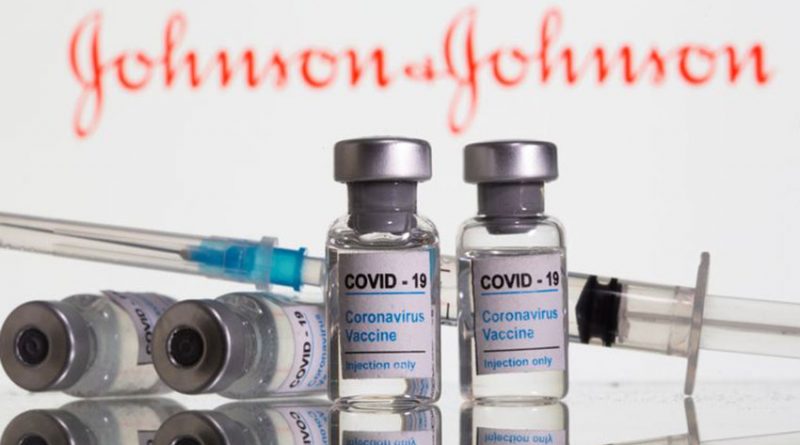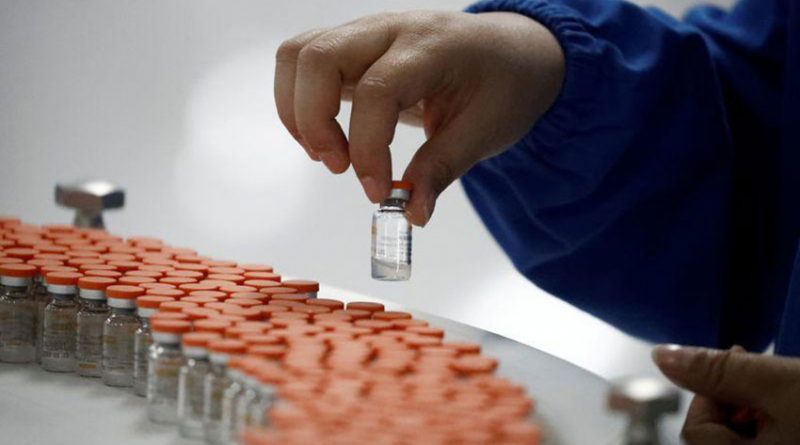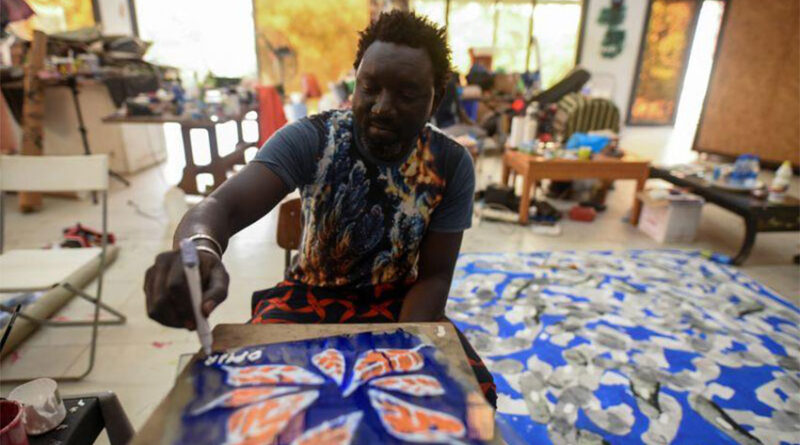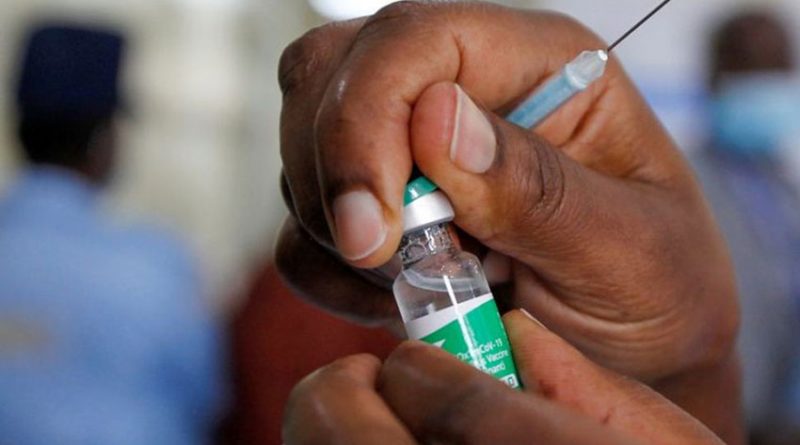JOHANNESBURG (Reuters) - A research study in South Africa further evaluating Johnson & Johnson’s COVID-19 vaccine in the field will resume on Wednesday, the health ministry said, after the study was paused over rare cases of blood clots in people given the vaccine.
During the pause, it had been established that there is a one in a million chance of getting a clot after the vaccine, so regulators across the world have recommended the continued use of J&J’s shot, the ministry said.
Local regulator SAHPRA, the South African Medical Research Council and health ministry have worked to ensure there is intensified pre-vaccination assessment and post-vaccination monitoring when the J&J study resumes, it added.
Reporting by Alexander Winning; Editing by Nqobile Dludla
Our Standards: The Thomson Reuters Trust Principles.
EGYPT has agreed with China’s Sinovac Biotech Ltd to manufacture its COVID-19 vaccine domestically and could produce up to 80 million doses a year, the health ministry said on Thursday.
The agreement could provide a major boost to vaccination efforts in Egypt, which has a population of 100 million and has thus far received just 1.5 million doses.
Egypt’s cabinet and presidency approved a joint manufacturing agreement to make the vaccines that will be distributed in Egypt and to other African countries, Zayed said.
One production facility can produce 20 million doses annually, while another could produce 60 million, the health ministry said in a statement.
Egypt has so far received 854,400 doses of the vaccine produced by AstraZeneca as well as another 650,000 of the Chinese vaccine developed by China National Pharmaceutical Group (Sinopharm). The number of Sinopharm doses received would soon rise to 1 million, Zayed said.
Egypt began vaccinating frontline medical staff against COVID-19 on January 24 and expanded its roll-out on March 4 to include the elderly and people with chronic diseases.
Source - Thomson Reuters Foundation
WHEN Senegal erupted in violent protests this month over perceived injustice and inequality, artist Omar Ba was tackling the issues in his own way, with paint on canvas.
“What the youth are doing in the streets is the same thing I’m doing in my studio,” said Ba, stepping in black paint and making footprints on a new canvas in his airy workspace outside the capital, Dakar.
Ba, one of Senegal’s best-known contemporary artists, has often used his art to make political statements. A current exhibit at the Galerie Templon in Brussels, ‘Anomalies’, critiques power-hungry leaders through a series of portraits of imaginary heads of state.
Ba said he was shocked to see such intense violence on the streets of his own country, widely viewed as a model of stability in West Africa.
“These are things I had seen on TV, but never here,” he told Reuters in an interview.
“I think visual art is something I have to use to denounce what’s not working or to talk about what is positive, in society.”
The protests were triggered by the arrest of a popular opposition leader but gathered pace on a wave of anger over economic inequality that has widened during the coronavirus pandemic. Thousands took to the streets, hurling rocks at security forces, who opened fire on protesters.
Some worry Senegal’s President Macky Sall will try to extend his rule beyond the allotted two terms, following a pattern of African leaders such as Ivory Coast’s Alassane Ouattara and Guinea’s Alpha Conde who used constitutional changes to reset their time in power.
Sall has not commented on whether he will seek a third term.
Ba normally keeps his subjects anonymous, so as to focus on themes rather than individuals, but for his next collection, he said he might depict Sall.
“Once they’re elected, (heads of state) completely change their discourse. I wanted to talk about that, and that’s why I called this exhibition ‘Anomalies’,” said Ba.
Four of the 12 paintings in the series deal with the coronavirus pandemic, conveying confusion and entrapment with the use of interlacing shapes and footprints.
COVID-19 exposed inequality and corruption in Africa, Ba said, and forced even the wealthy to rely on the ill-equipped public health services that they can normally afford to escape.
“Nobody could take planes to get treatment in Europe or the United States, and that was really great because for once people realized that in their own hospitals there was nothing.”
Source - Thomson Reuters Foundation
MORE producers of COVID-19 vaccines should follow AstraZeneca’s lead and license the technology to other manufacturers, the World Health Organization’s head said on Monday, as he described continuing vaccine inequity as “grotesque”.
AstraZeneca’s shot, which new U.S. data on Monday showed was safe and effective despite some countries suspending inoculations over health concerns, is being produced in various locations including South Korea’s SKBioScience and the Serum Institute of India.
WHO Director-General Tedros Adhanom Ghebreyesus called for more manufacturers to adopt this model to boost supplies, including for the COVAX vaccine sharing program seeking to speed more shots to developing countries.
“The gap between a number of vaccines administered in rich countries and the number administered through COVAX is growing and becoming more grotesque every day,” Tedros told a news conference.
“The inequitable distribution of vaccines is not just moral outrage. It’s also economically and epidemiologically self-defeating.”
Earlier, AstraZeneca released interim data showing its vaccine, developed with Oxford University, was 79% effective in preventing symptomatic COVID-19 and posed no increased risk of blood clots.
WHO chief scientist Soumya Swaminathan called it a “very good vaccine for all age groups”.
Sweden, Norway, Finland, and Denmark have extended suspensions of AstraZeneca’s shot as investigations continue into rare blood clotting events.
Still, WHO officials said African countries getting the vaccine via COVAX are moving ahead.
“They did ask a lot of questions but the demand for the vaccine is extremely high,” said WHO senior adviser Bruce Aylward.
It remains possible for COVAX to hit a second-quarter goal of delivering 300 million doses, Aylward said, while acknowledging “teething problems”, with SKBioSciences and the Serum Institute hard-pressed to satisfy COVAX orders.
“We simply cannot get enough vaccine,” Aylward said. “We’re hoping both companies will be able to scale up and keep up with the rate of deliveries we’re aiming for.”
Source - The African Mirror




